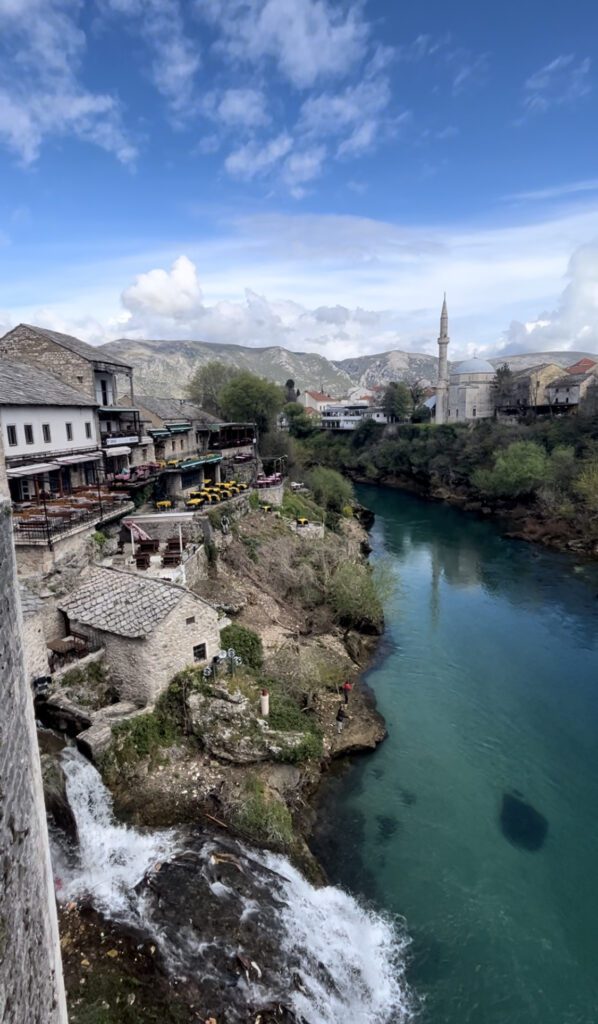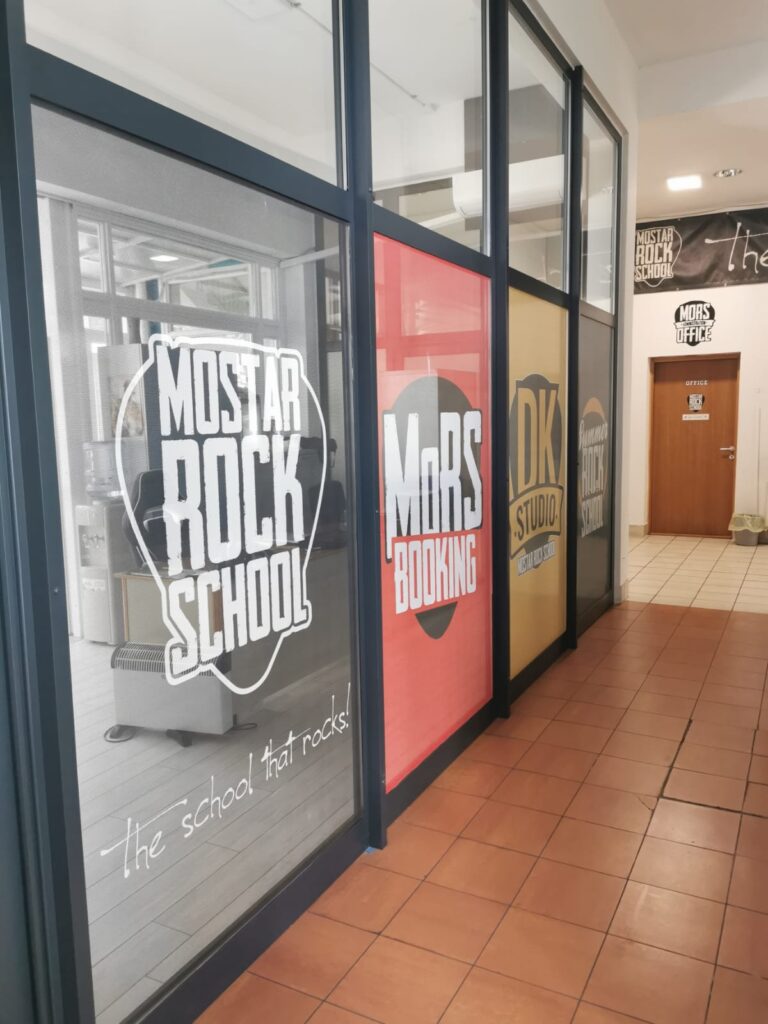During their recent trip to Bosnia and Herzegovina, the UPF Travel Committee was able to visit one inspiring school that is trying to unite students over their love for music.
Situated in the beautiful mountainous country of Bosnia and Herzegovina along the Neretva River is the city of Mostar. In the very heart of the town, the old Pavarotti Music Center houses the Mostar Rock School. It is a music school with the ambition to curb division and animosity, instead perpetuating talent, music, and community. Understanding the complexities of Bosnia and Herzegovina’s history and ethnic division is crucial to understanding the importance of the Mostar Rock School.
Wandering the streets of Sarajevo, the capital of the country, remnants of the war still leave a clear mark on the city. It does not take long before noticing traces of conflict, from bullet holes in walls to the countless roses marking locations in which at least three or more people lost their lives from explosions. Meanwhile, the challenges of ethnic division are even more prevalent when leaving the capital city and heading elsewhere. Towns like Mostar, which has a history of deep-seated ethnic divisions and tensions.


Bosnia and Herzegovina’s problematic ethnic divisions extend all the way to school systems, primarily due to the nation’s complex political system. The country itself is divided into two entities, the Federation of Bosnia and Herzegovina (dominated by Bosniaks and Croats) and the Republika Srpska (dominated by Serbs). Each entity has its own Ministry of Education, which is responsible for developing the curriculum and overseeing the school system within its territory.
As a result, schools in Bosnia and Herzegovina are largely segregated along ethnic lines, with separate schools for Bosniak, Croat, and Serb students. This segregation extends beyond the classroom, with separate textbooks, curricula, and even different languages of instruction used. This means that students from different ethnic groups often have little contact with each other, leading to a lack of understanding and exacerbating inter-ethnic tensions.
This is something Orhan Maslo, one of the founders of Mostar Rock School, tries to combat. The school offers a unique opportunity for students to break down barriers and form meaningful connections with their peers, some of which they may otherwise never have had contact with. Mostar Rock School is an example of the transformative power of music. Through learning to play instruments, writing songs, and performing together, students develop a sense of teamwork, creativity, and self-expression. Music can transcend language, culture, and other differences, bringing people together in a way that few other activities can.
Oha, as Mostar locals would refer to Orhan Maslo, is proud of the change that is beginning to happen thanks to the initiative. Since its founding year in 2012, the music school has become such a success that it has received international recognition and even donations from organisations such as US Aid, the Norwegian Embassy and the Swedish Institute for Development Aid (SIDA). Oha also does not shy away from mentioning the struggles of corruption in the country. This poses significant hurdles for the school as it can affect funding and resources, undermine the quality of education, and create an environment of mistrust and uncertainty. As such, it is essential for the school to maintain a culture of transparency and accountability to ensure that it remains a trusted and respected institution in the community.


When asked how Mostar Rock School has found its success and is still thriving in such a segregated place, Oha answers by mentioning perseverance, the importance of transparency, as well as the significance of international collaboration. He argues that similar approaches could thrive in many other places, provided they do not give in to corrupt powers. The international community should take note of such effective and inclusive methods.
For many development projects, richer nations are known to impose their methods and strategies on developing nations. Listening to local voices such as Oha may have different but conceivably more successful strategies in that local context.
The Mostar Rock School is an example of how grassroots initiatives can make a real difference in peace building and reconciliation. In a region where political solutions to ethnic conflicts have often been elusive, the school provides a model for how ordinary citizens can take matters into their own hands and work towards a more harmonious future. Not only is this an initiative that could be successful in Bosnia but with a rapid development of polarisation and division that has become more prevalent in the West, perhaps the global north can take note and attempt to adopt similar strategies to facilitate development and curb division in their own regions.
By Emily Wudie Jonsson








